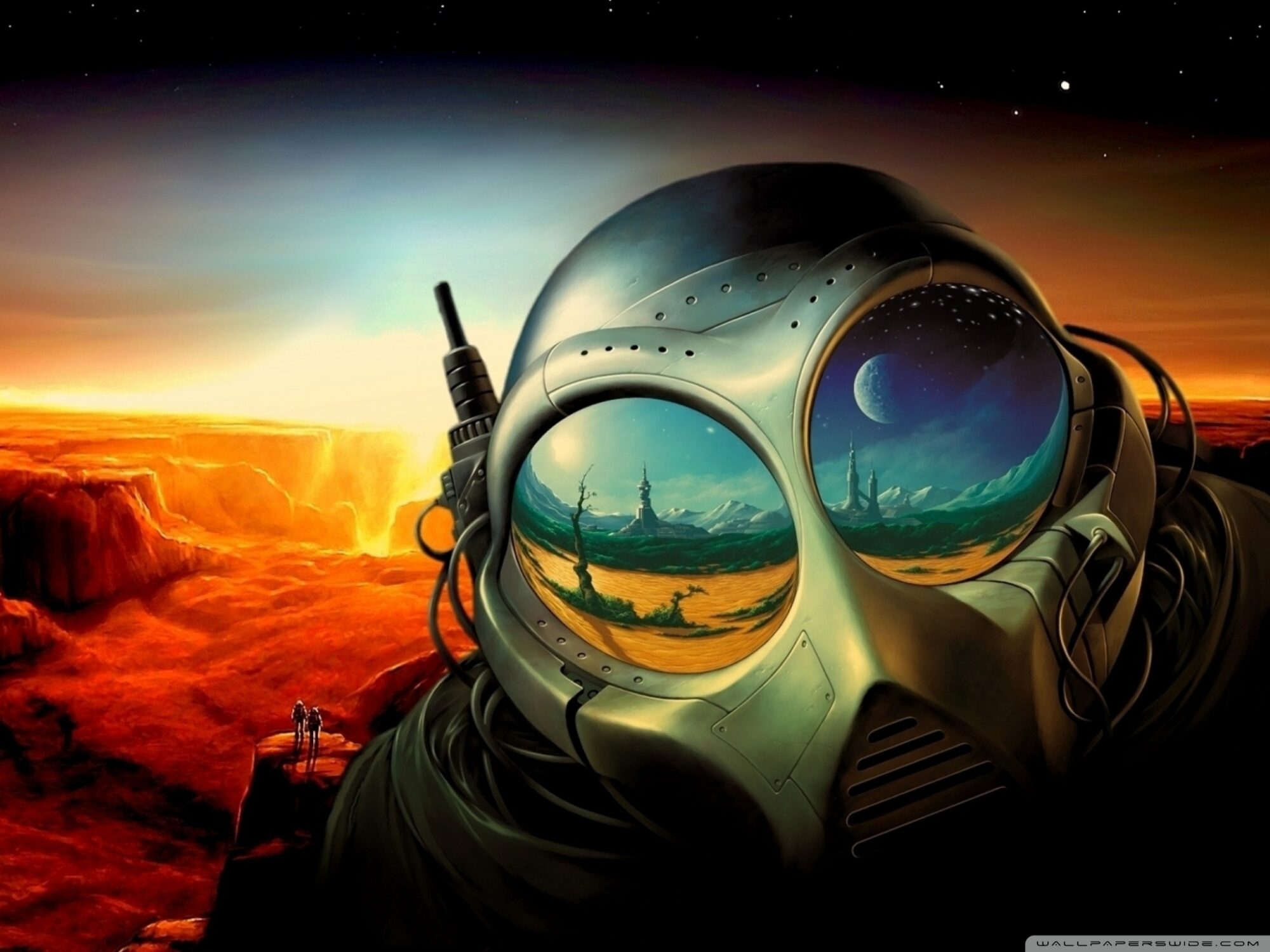The bottom line is that all we care about is continuity – the continuity of what exactly doesn’t matter in the least, just as long as there is continuity of something. That’s all that matters to us.
The other way of putting this is to say that the thing we most want to avoid is the discontinuity. As Krishnamurti notes, it’s not the new we fear but the ending of the old. What happens when we let go of the old (or the known) after all? On a very deep level we know that there is just no knowing and this is the risk, this the ‘not knowing’, that we are so afraid of.
We’re afraid of ontological risk, therefore; we’re afraid of what there might be when the known ends. This isn’t a specific fear, it’s not like a fear of spiders, or fear of being embarrassed in public; what terrifies us so much isn’t something we can explain, we don’t know what we’re afraid of or why we are afraid of it, but this risk is nevertheless the most frightening thing there is. It is colossal, it’s indescribable. This is Great Ineffable Terror.
There’s more that we can say about this, however. There is one very important point that we can make at this juncture, and that is that it isn’t actually any such thing as the continuity, for all that we care so very much about it! Nothing continues, and there is nothing to continue. The nature of reality is unlimited change, not the continuation of some hypothetical or imagined ‘thing’.
Science has long since abandoned any idea of there being some kind of underlying ‘thing’ or ‘substance’ – there isn’t the slightest bit of evidence for this idea and there’s no need for it, either. It’s like the old idea of there being some sort of Universal Substrate, known as the Ether, that would allow for there to be some sort of mechanism whereby light, gravitation, etc, can be propagated through space. There has never been any evidence for this substrate, and we no longer need to posit it in order to explain phenomena. The idea that there is something to be ‘passed on’ from moment to moment is not in the least bit scientific.
The bottom line is that all we care about is continuity, and yet there isn’t any, and so this constitutes an insoluble problem for us. The thing we most want to avoid in life is the discontinuity and yet the discontinuity is all there is. We fear the ontological risk of ‘not being able to know what is going to happen next’ more than anything else in the world, and yet ontological risk is reality itself. To be fundamentally risk-averse and yet to live in the real world are thus two entirely incompatible things.
Our solution to this insoluble problem is simple, therefore – we make sure never to live in reality! That’s the only possible solution of course, only it isn’t really a solution. It isn’t really a solution because there’s no such thing as ‘not being in reality’! As a result, when we try to put this trick into action it rebounds on us: what we think we have gained – namely, an easy or non-challenging type of life – a way of life where we don’t have to confront what we don’t want to confront – we haven’t gained at all. We haven’t ‘gained’ anything because our lives have become unreal.
The continuity that we are hanging onto so grimly is ‘the continuity of not having to see the truth’, which is ‘the continuity of illusion’. The continuity of illusion is the only continuity there is, after all! Ignoring or denying the ongoing flow of change which is all there is how we create the continuity and the continuity that we’re talking about here is the continuity of the self. What else would we be talking about, other than the self? When we deny that everything is flow, when we deny that everything is change (or movement), then the sense of fixed or static identity is the result. That’s what our wholescale denial of reality results in – the everyday self or ego.
The notion of there being are the fixed viewpoint of the unchanging identity which we from which we survive the world, and all the various events that occur in it, seems so natural to us, so normal to us, that we never think to question it, but the anomaly is obvious – if all is Flux, as Heraclitus says, then where does his static viewpoint come from? If all there is is ‘ungrounded change’ (which kind of invalidates the word ‘is’, as Robert Anton Wilson, following Alfred Korzybski, is at pains to point out) then what exactly is the deal with this stationary platform from which we are exclusively observing everything from?
The fixed viewpoint which is the self doesn’t observe the flow of ungrounded change – it would run a mile from this, observing the flow of ungrounded change is the very last thing it ever wants to do because its afraid that it would be drawn into that change, that it would lose itself in it, which is of course just what would happen. The sugar-doll will get lost in the ocean, as Meher Baba has said. The continuity will come to an end, and – what’s more – we will realise that there never was such a thing as ‘a continuity’ in the first place…
Image – teahub.io
